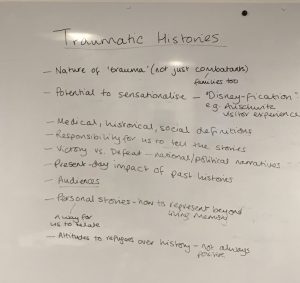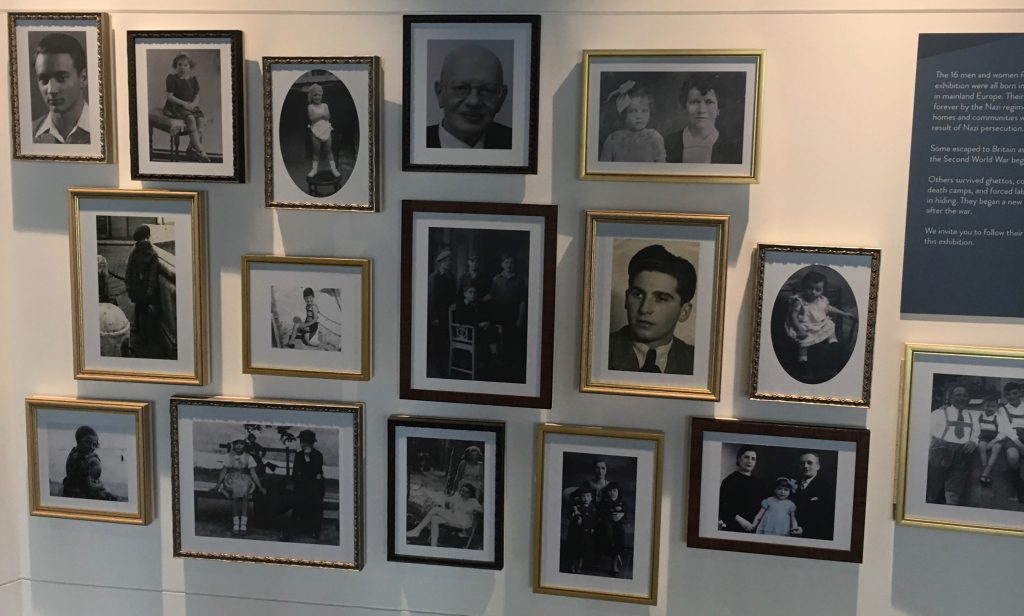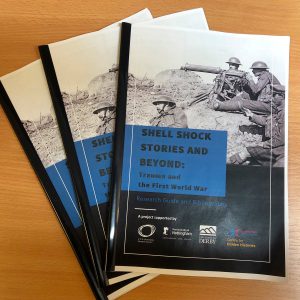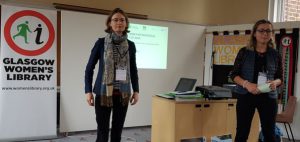On 13 February 2020, Dr Larissa Allwork (The University of Derby) presented the Trauma and the First World War workshop as part of a ‘Representing Traumatic Histories’ study visit organised by the IWM War and Conflict Specialist Subject Network at the Holocaust Exhibition and Learning Centre, Huddersfield (12 – 13th February 2020).

The two day study visit featured presentations from IWM, the Forces in Mind Trust, Historic England and Age Exchange, among others. These presentations reflected on the challenges of representing traumatic histories in public education, exhibition, policy, health and artistic contexts. A particular focus for discussion was the Holocaust and the Nazi past, with Emma King (Director of the Holocaust Exhibition and Learning Centre) introducing the Huddersfield exhibition and Iby Knill, a survivor of the Nazi camps giving an account of her experiences. Delegates also got to hear about the curatorial strategies behind the new IWM Second World War and Holocaust galleries to be opened in 2021; as well as plans for the new IWM Second World War and Holocaust Partnership programme.
Throughout the two day event delegates discussed best practice in relation to representing traumatic histories. These discussions will inform, ‘Ideas for Approaching Traumatic Histories’, an open access guide that will be published on the website for the IWM War and Conflict Specialist Subject Network. The event was a really excellent exchange of ideas, and particularly interesting for Larissa as it brought together her research interests in the First World War, the Second World War and the Holocaust.
 Huddersfield’s ‘Through our Eyes’ exhibition tells the story of 16 children and young people from Europe who survived the Nazi regime and settled in the north of England.
Huddersfield’s ‘Through our Eyes’ exhibition tells the story of 16 children and young people from Europe who survived the Nazi regime and settled in the north of England.

